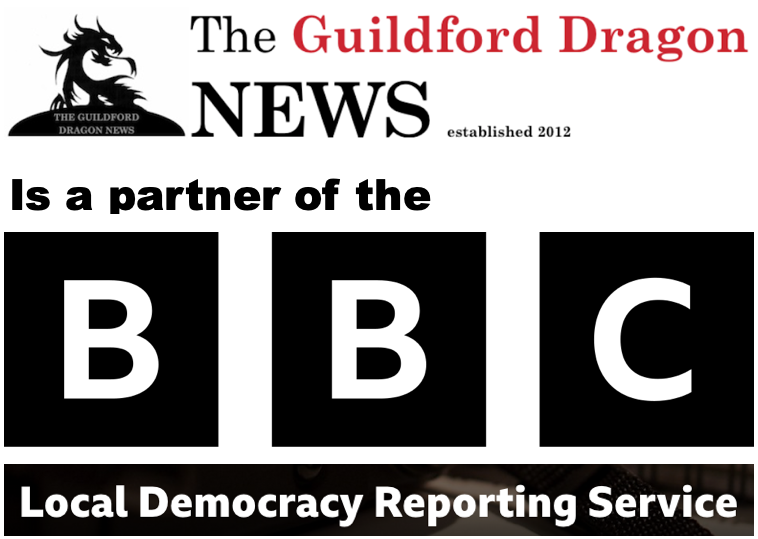 Abraham Lincoln
If given the truth, the people can be depended upon to meet any national crisis...
Abraham Lincoln
If given the truth, the people can be depended upon to meet any national crisis...
 Guildford news...
for Guildford people, brought to you by Guildford reporters - Guildford's own news service
Guildford news...
for Guildford people, brought to you by Guildford reporters - Guildford's own news service
Insights: The Band on the Titanic Strikes Up ‘Devolution!’ – Part 3
Published on: 29 Dec, 2024
Updated on: 31 Dec, 2024
Bernard Quoroll served as chief executive or a senior officer in six local authorities.
He says that the radical proposed changes in the English Devolution White Paper are akin to rearranging the deckchairs on the sinking Titanic and will leave England as one of the most centralised western democracies in Europe.
His insights, in three parts, are worth reading. This is part three.
See Part 1 here.
By Bernard Quoroll
This government has claimed that it intends to redistribute resources from wealthier areas (ie broadly from the South to the North and the deprived parts of cities) to begin to address the aforementioned problems, as if resource redistribution was somehow a new initiative.
There is a role of course for redistribution of wealth between wealthier and less wealthy regions and only central government can do it.
 Something called the “rate support grant” was supposed to fulfil that function by using regression analysis applied over hundreds of different factors such as demography, employment levels, health inequalities etc, to adjust grant levels toward a more equitable redistribution of wealth. That mechanism has been around for more than 50 years.
Something called the “rate support grant” was supposed to fulfil that function by using regression analysis applied over hundreds of different factors such as demography, employment levels, health inequalities etc, to adjust grant levels toward a more equitable redistribution of wealth. That mechanism has been around for more than 50 years.
But it has throughout time been manipulated and abused by successive governments to reward political friends and ignore the impoverishment of less favoured communities. The new government has announced its intention to return to fairer redistribution but (forgive my hollow laughter) Labour also has form.
A once intellectually coherent system of redistribution has also been fatally undermined in many other ways. Here are just a few.
Firstly, councils still usually only hear how much money they are going to get from national sources a few weeks before the start of the next financial year – no business can run like that.
 It is designed to restrain even medium-term planning.
It is designed to restrain even medium-term planning.
Secondly, fixed allocations have in some degree been replaced by “bidding competitions” in which councils have been required to waste huge amounts of resource, bidding for partial funding of government-sponsored projects of the day. There have been few local winners, huge administrative bureaucracies to satisfy, and perhaps worst of all, a diversion of effort away from local plans and objectives in favour of under-scrutinised trophy projects.
Sound familiar? In combination, they provide a smoke screen for the withdrawal of central funding. Of course, these clever little Treasury ploys are as nothing compared with the wholesale removal of grants since 2008 by the last government, so that councils everywhere are tipping into bankruptcy – locally, Woking, Spelthorne, Windsor and Maidenhead, Slough, the list is endless.
Worse they were almost encouraged to do so by a system which has permitted massive borrowings for a wide range of speculative investments like shopping centres and declining property portfolios about which councils were ill-equipped to make judgements, so desperate were they to manufacture income in support of growing demands on underfunded services.
This would not have happened if the Audit Commission (local government’s own independent watchdog) had not been abolished by a Conservative government. Councils did not go bankrupt prior to 2008. Whilst some local councils have always scraped along, they have never been so close to mass failure.
So my message is that local democracy has never been more at risk; that shallow quick fixes such as in the current White Paper will only detract from and make current problems worse; that shadowy devolution deals being cooked up between central government and a few local politicians will not, in the medium or long term, benefit local citizens in a wider service context but rather perpetuate the growing divide between politicians and the people they purport to want to serve.
There must be some “good news” amid this sorry debacle! Well here it is. Not only are combined authorities in the Midlands and the North getting elected Mayors, (whether or not local people even had a say about the principle) but as the price of new devolution deals in the South, we are all going to get them too!
But it’s a bit like the mockumentary television sitcom The Office when David Brent coyly announced to his team that in the middle of all the redundancies, there was some really great news, because he himself was going to get a promotion!
In recent years, politicians of both the largest parties have become obsessed with the idea of mayors along US lines alongside English political leaders and mayors in the more traditional sense of being first citizens.
So more mayors than you can shake a stick at! It sounds superficially attractive – the idea that strong, colourful, visible politicians can do deals with central government on behalf of their communities and change the world fast for the better. They can be action-orientated on behalf of their communities and win things rather than getting bogged down by locally elected people who keep asking awkward questions. What’s not to like?
During my 40 or so years in public service the best political leaders I encountered were not US-style individualists but people who worked within the political consensus of their own party, a consensus which supported them but also held them to account in private and sometimes in public. It helped them to stay connected to local opinion and remain more honest by the standards of the day.
They in turn had to justify their position in front of opposition figures who asked awkward questions in committees and were thirsting to call them to account. It was not always pretty but it had checks and balances.
There were and still are many leaders like that around, not ministers or strong mayors rebranded in the image of central government ministers. The best of them seek longevity, as well as glory, and find satisfaction in the continuing local support of their peers. They also live just up the road.
Today’s government-promoted fixers don’t somehow feel the same. The differences between strong independent regional mayors and politically embedded local leaders may be subtle at times but the eagerness with which national political parties are promoting strong mayors gives me personally the strongest pause for thought.
See previous “Insights” articles here.
Recent Articles
- Ash Residents To Hear Plans For New Care Home On Land Set Aside For Health Purposes
- Police Seek Witnesses After Vintage Sign Is Stolen From Pub Garden
- ‘Help Us To Track Wildlife This Autumn’ – Surrey Charity’s Plea To Nature Lovers
- Letter: Are Vendor-linked Awards the Way to Go for Schools’ ICT?
- Letter: How Not to Engage the Public
- GBC Takes Legal Action Over Unauthorised Bramley Traveller Site
- Developers Release Early Plans For 950 Homes on Normandy Farmland
- Open Day at Silverbirch House Care Home and a Special Gift for One of its Residents
- Birdwatcher’s Diary No.336
- Behind The Picture Of Wealth and Prosperity – Surrey Has a Story of Inequality and Poverty



Search in Site
Media Gallery
Cllr Townsend on Waverley’s CIL Issue
August 27, 2025 / Comments Off on Cllr Townsend on Waverley’s CIL Issue / Read MoreMP Zöe Franklin Reviews Topical Issues
August 27, 2025 / Comments Off on MP Zöe Franklin Reviews Topical Issues / Read MoreMP Hopes Thames Water Fine Will Be ‘Final Nail in Its Coffin’
August 27, 2025 / Comments Off on MP Hopes Thames Water Fine Will Be ‘Final Nail in Its Coffin’ / Read MoreNew Guildford Mayor Howard Smith
August 27, 2025 / Comments Off on New Guildford Mayor Howard Smith / Read MoreA New Scene for a Guildford Street
August 27, 2025 / Comments Off on A New Scene for a Guildford Street / Read MoreDragon Interview: Sir Jeremy Hunt MP on His Knighthood and Some Local Issues
August 27, 2025 / Comments Off on Dragon Interview: Sir Jeremy Hunt MP on His Knighthood and Some Local Issues / Read MoreDragon Interview: Paul Follows Admits He Should Not Have Used the Word ‘Skewed’
August 27, 2025 / Comments Off on Dragon Interview: Paul Follows Admits He Should Not Have Used the Word ‘Skewed’ / Read MoreDragon Interview: Will Forster MP On His Recent Visit to Ukraine
August 27, 2025 / No Comment / Read MoreDragon Interview: Fiona Davidson on the ‘Devolution’ Proposals for Surrey
August 27, 2025 / No Comment / Read More












Recent Comments